How Manufactured Homes Keep You Poor.
Manufactured homes have come a long way over the last couple decades in both quality and curb appeal – especially the mid and upper range homes. Some of the higher end homes are simply amazing.
They still have some negative issues associated with them that can affect communities. Studies show they do affect property values of neighboring traditional homes. This is especially true of entry level units.
This report will explore some of the often overlooked long term financial issues of manufactured home ownership.
We do want to acknowledge that based on your options and goals, Manufactured Homes may be a great option for you.
We invite people to read and respond with thoughts, additions and corrections to include in the final report.
Summary:
-
- Manufactured homes can make a difference in low income home ownership
- They have Pros and Cons that are important to consider before buying
- Home Ownership and Wealth Building
- Manufactured Homes and Wealth Building
- Does a Manufactured Home Depreciate or Appreciate in Value?
- How Long Does a Manufactured Home Last?
- Cost Benefits of Repairs and Improvements
- Financing Disadvantages of Manufactured Homes
- Its Harder to Get a Mortgage on a Manufactured Home
- Is it Harder to borrow against your equity on a manufactured home.
- Generally can’t Finance a Manufactured Home as a Rental
- Manufactured Homes can have a negative impact on Community Building that can hurt your community
- Existing Stigma of Manufacture Homes
- Modular Homes Offer some Better Options
Manufactured homes can make a difference in low income home ownership
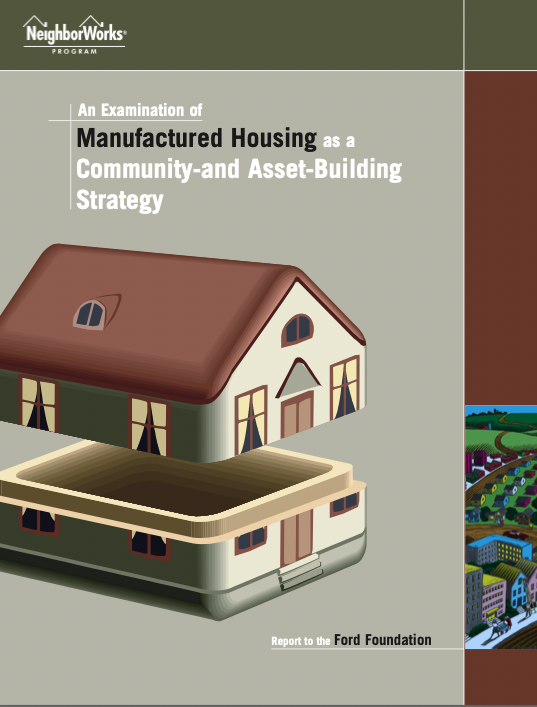
An Examination of Manufactured Housing as a Community and Asset-Building Strategy
This Report to the Ford Foundation by Neighborhood Reinvestment Corporation In collaboration with the Joint Center for Housing Studies of Harvard University offers a well developed document on the Manufactured Home industry and how it can be useful in helping with lower income housing.
When attached to land ownership, homeowners can gain equity over time. On leased land, equity growth is possible but generally at a lower rate when it does happen.
We will quote from this report in a couple sections of this article.
This report does not discuss how a large number low end manufactured homes might impact the economy of a small rural community, adjacent property values or other social issues of over saturating a community with low income housing.
The Pros and Cons of Manufactured Homes
According to KHovnanian Homes:
So you think that a manufactured home may be the right choice for you. Before you make your final decision, be sure to consider the pros and cons of manufactured homes.
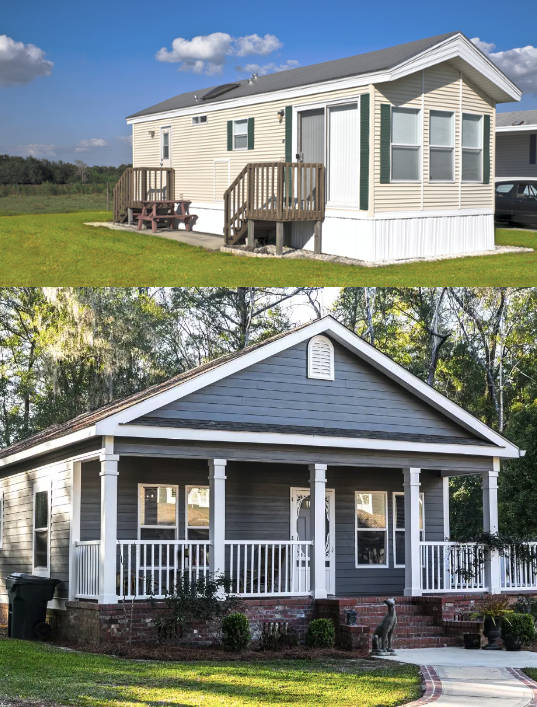 Pros:
Pros:
-
- Construction delays minimized – built at one facility, in controlled environment, unaffected by weather
- Shorter completion time – streamlined construction processes and stockpiled materials
- Select your features and finishes – some level of personalization is usually available
- Peace of mind – reliable quality and safety standards, built to the HUD Code
- Within your budget – more affordable than stick-built homes
Cons:
-
- Availability and cost of suitable land
- Extra costs imposed by manufactured home community
- Fewer choices and higher costs of financing
- Fewer personalization options and amenities
- Lingering stigma of mobile homes
- Questionable long-term value; slower, if any, appreciation
Manufactured homes offer an affordable homeownership option for some families, and the improvements in their quality and safety have made them a more desirable option in recent decades.
Home Ownership and Wealth Building
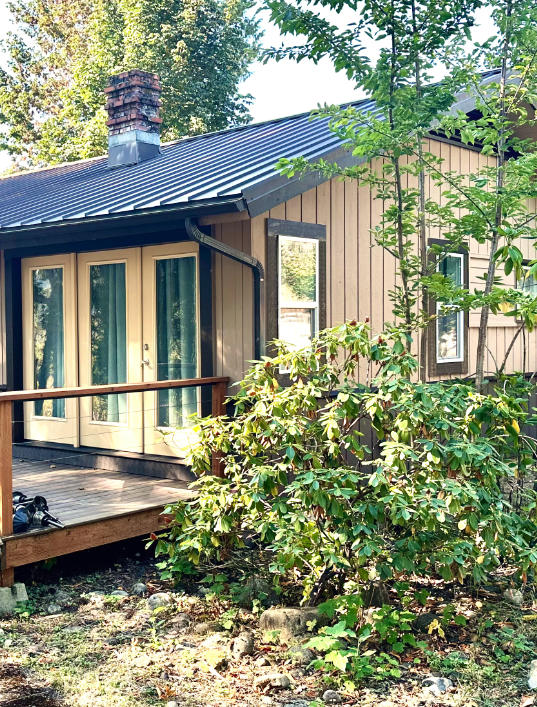 Building Generational Wealth Through Home Ownership:
Building Generational Wealth Through Home Ownership:
“Purchasing a home is a foundational step for building generational wealth, and one of the most consistent ways to build a financial bedrock for future generations.” – North Carolina Housing Finance Agency
The benefits of buying a hone with a fixed rate mortgage:
- Providing you with a stable investment that also doubles as a place to live
- Acting as an automatic savings account as each payment increases the equity in your investment
- Giving you a stable housing payment so you never have to worry about rising rent costs again
- Allowing significant tax deductions and credits,
- Providing you with a valuable asset that you can pass down for generations.
Manufactured Housing and Wealth Building
One of the key concerns this author has is how Manufactured Housing vs Stick Built (or Modular Homes) affect the long term finances for its owner.
Manufactured Housing is not the same as a Stick Built or a Modular Home and the difference could cost a Modular home buyer considerably in equity growth and family wealth.
There are many factors affecting the long term value of property, yet all the data we currently have show that well maintained homes attached to a permanent foundation (Stick-built homes and likely modular homes), have widely appreciated strongly over time. Another key benefit is that owners of these types of homes have access to multiple loan options for tapping into that equity.
During the housing shortage of the last 5-10 years, manufactured housing data suggests that mid and upper level manufactured homes have appreciated at rates similar to traditional homes. Yet the supporting data is limited.
To clarify, mid range and better Manufactured Houses have appreciated similar percentages as stick built homes have appreciated. This does not mean they worth the same as a stick built home on a per square foot basis.
See next section: Does a Manufactured Home Depreciate or Appreciate in Value? For more on appreciation.
Improvements in the general building quality of newer generations of manufactured homes has given hope that in 5,10 and 20 years they will be more desirable compared to previous generations. Manufactured Home Owners have limited access to home equity as finance options are scarce to non-existent. When it is available, the cost to borrow against that equity is much more expensive than Stick built home.
Studies also show that homeowners who invest in a stick built home build significantly more equity over time than manufactured home owners. (Link Here See Figure 5 on page 8)
Why this matters –
From a Personal Perspective: To retire comfortably you’ll want to make sure you have saved enough to live and to hopefully pass some resources to your kids and grandkids to help them out. Over time, the difference in your housing choice could easily translate into $100,000 to $200,000 difference in equity growth. The numbers can vary widely by state and local real estate markets. This is huge! (Perhaps I’ll write more about this in another article and show examples to justify these numbers. )
From a Community building Perspective: One measurement of long term health and stability of a community is the financial strength of its community members.
Savings through mortgage payments and home equity growth is the primary source of savings for most Americans.
- Retirement
- Paid off home – If mortgage is paid, cost of living is greatly decreased during retirement
- Pull Cash Out to help pay for Retirement Living – Reverse Home Mortgage is possible with stick built homes allowing owner to pull out living expenses during retirement
- Emergencies
- Having access to cash for emergencies using a Home Equity Line of Credit can be a lifesaver (not generally available on Manufactured Homes)
- Family support
- Being able to access cash for children or grandchildren for college, medical expenses, help with their 1st home purchase, or other things, can easily be accessed with home equity on traditional homes.
I don’t want to understate how important this is for long term financial well being. These issues are rarely brought up when considering buying a Manufactured Home.
Keep in mind, it’s more than just the monthly payment. You should be thinking long term as well as short term. Try and splurge one your future by opting for a Modular Home instead. Yet at the end of the day, sometimes we can only afford, what we can afford.
Does a Manufactured Home Depreciate or Appreciate in Value?
Urban Institute published an article derived from a Federal Housing Finance Agency report on house pricing increases in 2018 “New evidence shows manufactured homes appreciate as well as site-built homes” – however they state in the article that the data is skewed:
- “Alabama, Florida, Louisiana, North Carolina, and Texas—which have accounted for 41 percent of the MH market since 2011, have average price appreciation below the national level, according to the FHFA indexes.”
- our comparison disadvantages MH versus a measure in which we compare properties in the same area
- The GSE data for this study was based on mostly high end manufactured homes “The GSEs underwrite a small share of MH originations, and their production is mostly high-end.”
They go on to say that the GSE data they were using is where the MH owner owns both the land and the structure. “We would not expect the same rate of home price appreciation on structures alone, as land generally appreciates more than structures.”
Urban Institute does admit that limited data makes it difficult to apply their index to the entire market.
According to Mid-State Mfg. Housing, a Manufactured Home seller, “Anyone who tells you a manufactured home, by itself, will not drop in value is not speaking the truth. The simplest and most relatable example is to think along the lines of a new car. New cars drop in value as you drive them off the lot right?”
Before the housing shortage, pricing in used manufactured housing was suppressed by the ability to buy repo’d housing super cheap. Mid-State Mfg Housing also acknowledges that pricing has been strong due to the shortage of housing (supply shortages): “Not only do you have a low supply of used homes on the market today, you have the accelerated costs of new manufactured homes. This industry, much like others, have had huge price increases and some inflation, especially over the last 3 years. As the new homes increase in cost, this pushes more buyers into the used home market, which then increases demand.” October, 25, 2019
The fear many have is that once supplies normalize, manufactured homes will return to pre-shortage pricing which will devalue used manufactured homes.
Supporting Urban Institutes article is a report from Manufactured Housing Institute of South Carolina, they report that: A Study by East Carolina University says that ”Manufactured homes appreciate at comparable rates as site built homes” but only “when taxes as real property” [Real Property is how a stick built home is taxed. This would apply to Modular Homes in Oregon, but not Manufactured Homes]
They go on to say that other studies show that appreciation is largely based on location and condition.
Editor’s note: we could not find a copy of that East Carolina University study online
Financing Affects Values – the value of large priced items like manufactured homes are often tied to the ability to get financing, and the cost of financing. According to Consumer Financial Protection Bureau: Manufactured Housing Loan Borrowers Face Higher Interest Rates, Risks, and Barriers to Credit, New CFPB Report Finds
This is a huge difference between manufactured homes and stick built homes. It affects market values. It also has an impact on the difficulty of selling a manufactured home.
How Long does a Manufactured Home Last
According to the U.S. Department of Housing and Urban Development (HUD), today’s manufactured homes have an average life expectancy of 30–55 years, depending on the level of maintenance.
Well maintained stick built homes last significantly longer.
This is a huge concern when it comes to long term value and equity growth. Manufactured homes are not permanent structures. They have not had the shelf life of a traditional stick built home.
Cost Benefits of Repairs and Improvements
Typically as Manufactured Homes age, there is a point where making big repairs doesn’t make any sense. The cost benefit of the improvements are not justified by the value of the rehabbed Manufactured Home.
In 2005, I had a doublewide with great space and vaulted ceilings, but the windows were aluminum framed and the cheap, contractor grade kitchen cabinets started falling apart. There were a couple of places where the siding started to fail. The super basic 3 tab shingles were 5 years away from needed to be re-roofed. By the time we added up all the costs to make the repairs on this only 20 year old Manufactured Home, it was cheaper to buy a used Repo’d Manufactured House than it was to fix the one we had.
On a stick built home, the repairs need to be really extensive/expensive to consider razing the house and starting over.
Renovations are also encouraged in stick built as some value of the renovation will show up in increased property values. (Not to mention the ability to borrow money against the house to make big improvements.)
Financing Disadvantage of Manufactured Homes
Its Harder to Get a Mortgage on a Manufactured Home
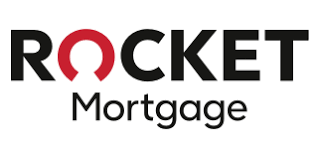 According to Rocket Mortgage: “Financing a mobile or manufactured home can be difficult, particularly if you want to do so with a mortgage. Since most lenders don’t consider manufactured or mobile homes real property, there are lots of requirements and stipulations you’ll have to meet if you want to qualify for a mortgage.” Rocket Mortgage is “the nation’s largest residential mortgage lender”.
According to Rocket Mortgage: “Financing a mobile or manufactured home can be difficult, particularly if you want to do so with a mortgage. Since most lenders don’t consider manufactured or mobile homes real property, there are lots of requirements and stipulations you’ll have to meet if you want to qualify for a mortgage.” Rocket Mortgage is “the nation’s largest residential mortgage lender”.
Is it Harder to borrow against your equity on a manufactured home.
According to Millennial Money: “Here comes the hardest part: finding a lender that will let you borrow money against a mobile home. Unfortunately, this is harder than it looks. Securing a home equity loan is a lot more difficult when you have a mobile home versus a traditional home.” (Sept 13, 2022)
It is likely because these types of loans are higher risk / higher cost for banks – resulting in loans that are harder to qualify for and cost more to the borrower.
Banks Don’t Finance a Manufactured Home if its a Rental
Global Equity Finance, a large mortgage brokerage firm based in San Diego, CA says “Not all investment properties are eligible for financing. Mortgages for manufactured homes, time-shares, co-ops and bed and breakfasts range from rare to nonexistent.”
Loans are always available from non-traditional sources, like hard money loans, but these are usually very expensive options, at rates and terms that often seem predatory.
Why is this important? While most people may never buy a rental, property investment historically has been one of the best ways to build wealth. Manufactured home owners have reduced options due to limited access to financing. This also limits resale values as investors are unable to finance used manufactured homes. (There is a much bigger conversation about the pros and cons of this.)
Manufactured Homes can have a Negative Impact on Your Community
Existing Stigma on Manufactured Homes
In A REVIEW OF OREGON’S MANUFACTURED HOUSING POLICIES by Katie Bewley (published on Oregon State University’s website), Browley acknowledges in her research findings that the stigma and reputation of Manufactured Home Parks remain in spite of improvements, and that they still remain “undesirable” to most people.
“According to Katherine MacTavish, “although mobile home park residence offers one of the leading sources of unsubsidized low-cost housing in the United States, such residence comes with social costs attached. […] Exposés draw the rural trailer park as the equivalent of a rural slum; an image the public willingly accepts.” (MacTavish 2007). She draws on statements from interviews to gauge community opinions toward MHP residents, such as “if you live in a trailer park, you’re on welfare, use drugs and are a bad parent—automatically” and “the kids get named as trailer trash.”*
She also highlights the trend of these parks decreasing in numbers over the years.
While her study primarily focuses on Manufactured Home Parks, it does reflect the overall stigma that covers manufactured homes.
A survey of Virginia residents from 2000, underscores this challenge. Respondents stated that they thought manufactured homes down nearby property values, for example, in part, perhaps, because the homes are likely to cost less than existing homes. When such attitudes prevail, it is hard to convince localities to improve land use rules to accommodate manufactured housing. Indeed, these attitudes encourage the opposite, as some leaders wish to further restrict the siting of manufactured housing.
Modular Homes Offer a Better Option
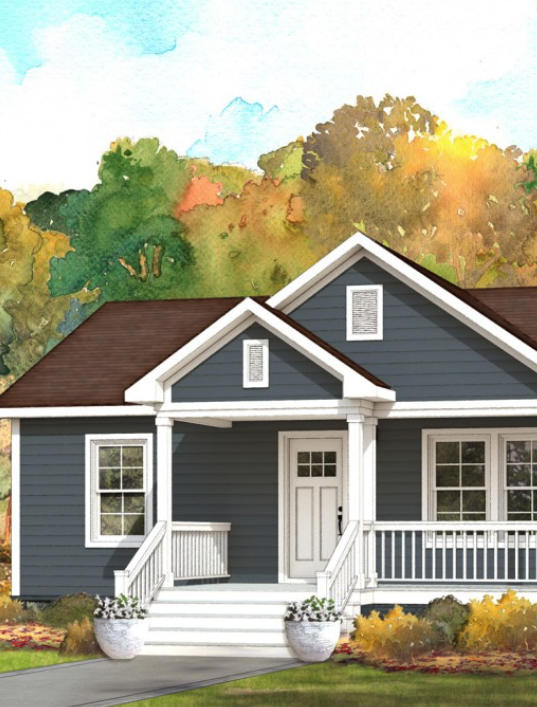 “The primary difference between modular and manufactured homes is that modular homes are held to the same local, state and regional building codes required for on-site homes. Manufactured homes are held to a federal code set by the Department of Housing and Urban Development (HUD) and have the ability to move.” – Rocket Mortgage They go on “Most banks and mortgage lenders offer financing on modular homes which means buyers will have a more diverse range of options when it comes time to purchase their home. Rocket Mortgage finances modular homes.”
“The primary difference between modular and manufactured homes is that modular homes are held to the same local, state and regional building codes required for on-site homes. Manufactured homes are held to a federal code set by the Department of Housing and Urban Development (HUD) and have the ability to move.” – Rocket Mortgage They go on “Most banks and mortgage lenders offer financing on modular homes which means buyers will have a more diverse range of options when it comes time to purchase their home. Rocket Mortgage finances modular homes.”
They usually cost more than a manufactured home, if for no other reason than you are putting in a full foundation.
Yet the value in equity growth, access to traditional financing and ability to easily pull out cash from your equity makes up for that.
Depending on how they look, they have less of a stigma than Manufactured Homes.
In most every case, if you can get a modular home instead of a Manufactured Home, you will likely be better off.
We’d encourage a buyer to shop hard from a reputable manufacturer with a history of quality build. If you can afford the extra gingerbread and upgrades to ensure that it does not look like a basic Manufactured Home, you will likely get higher appreciation out of it.
Browliey, Katie 2018 A REVIEW OF OREGON’S MANUFACTURED HOUSING POLICIES by Katie Bewley
Mactavish, Katherine. 2007. “The wrong side of the tracks: Social Inequality and Mobile Home Park residence.” Community Development March 01: 74-91.
Note from Author: While I have a lot of experiences and my mom tells me I’m smart, I know I am not the smartest guy in the room. I’d love to hear your feedback on how to make this article more accurate and useful for people considering purchasing Manufactured Homes. Did I miss anything? Is there new evidence that justifies changing a section or even the premise of the article? Use our “Contact” form“Contact” form and mention the name of this article.
Article by Chris LaVoie – Chris is an active real estate investor, has owned, rehabbed and rented manufactured homes, single family homes, apartment complexes and commercial property. In past years he has owned and co-owned real estate brokerages and a property management firm. As the current Executive Director of McKenzie Community Partnership (a non profit Community Development Corporation) and previously as aboard member, he has been working on small community development issues in rural Oregon for over 15 years. Chris was instrumental in the initiation of the Blue River Community Sewer project which was successfully funded by the state thanks to the efforts of many great community volunteers (and the awesome project leadership of Tim Laue).